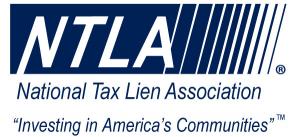
National Tax Lien Association Warns of Negative Impact from Ohio Sub. S.B. No. 206 on Local Governments and Taxpayers
Proposed Ohio legislation threatens tax lien sales, risking vital county revenues and public services. NTLA urges lawmakers to reconsider Sub. S.B. No. 206.
COLUMBUS, OH, UNITED STATES, December 13, 2024 /EINPresswire.com/ -- The National Tax Lien Association (NTLA) is urging lawmakers to reconsider Ohio Senate Bill 206 (Sub. S.B. No. 206), a proposed piece of legislation that could have devastating consequences for Ohio’s county treasurers, taxpayers, and the essential public services funded through the sale of tax liens. The NTLA warns that this bill could severely disrupt the real estate tax lien market, making it increasingly difficult—if not impossible—for counties to sell their tax liens, leading to significant financial shortfalls for local governments and jeopardizing their ability to fund critical public services.
Impact on Tax Lien Purchasers, County Treasurers, and Local Governments:
Ohio’s tax lien sale process plays a crucial role in ensuring that local governments can collect overdue property taxes. Currently, county treasurers sell real estate tax liens to investors, who, in turn, enforce the collection of those taxes. This process provides counties with a reliable stream of revenue, funding vital public services such as schools, police and fire departments, emergency medical services, libraries, and more.
However, Sub. S.B. No. 206 introduces a significant disruption to this system. The proposed bill would mandate that tax certificate purchasers offer a "right of first refusal" to junior lienholders, such as mortgage holders, within 90 days of purchasing the lien. This new requirement would impose additional financial burdens on tax certificate purchasers, including the cost of title work to identify junior lienholders and the obligation to offer to sell the lien back at the original purchase price plus associated costs—without compensation for lost interest income.
More concerning, if a junior lienholder exercises their right of first refusal, they could retain their first lien priority, essentially undermining the foundational principle of the tax lien system. This would deter investors from participating in the market, as it erodes the incentive for investing in tax certificates by diminishing their priority status and security.
The Ripple Effect on Local Government Funding and Services:
While this proposal directly impacts tax certificate purchasers, its consequences for local governments are far-reaching. Many county prosecutors in Ohio do not file tax foreclosures due to a lack of resources and capacity. Without the sale of tax lien certificates to investors, many counties will be left without the means to enforce overdue tax collections. This would place additional strain on already underfunded government offices, including the Treasurer’s, Prosecutor’s, Sheriff’s, and County Auditor’s offices, which rely on a percentage of collected tax revenues to fund their operations.
Tax lien sales serve as a crucial tool for incentivizing property owners to pay overdue taxes directly to the county. If counties lose the ability to sell tax liens, there would be little reason for delinquent property owners to settle their tax bills. This could lead to widespread non-payment, exacerbating budget shortfalls and forcing counties to explore less efficient, more costly methods of tax collection—ultimately increasing the burden on taxpayers and government resources.
Beyond local government operations, schools, police, fire departments, and other essential services funded by property taxes would face significant funding gaps. For example, counties use a portion of the proceeds from tax lien sales to fund emergency services and public safety programs. Without access to this revenue stream, the entire community suffers, and already strained budgets for essential services would likely see further cuts, affecting the quality of life for all residents.
The Cost Savings to Local Governments and Taxpayers:
The current tax lien system helps local governments by reducing the cost of tax collections. Tax certificate purchasers shoulder much of the burden of enforcing unpaid liens, covering the costs of collection efforts, filing actions, and administrative expenses. This relieves counties of the financial burden associated with managing and pursuing delinquent property taxes. The cost savings to local governments alone provide a substantial benefit, which could be lost if tax lien sales are restricted or eliminated.
In short, without tax lien sales, many counties would be left with no effective tool for enforcing tax collections, and property owners would have fewer incentives to pay their taxes, leading to an increase in tax delinquency. This situation would lead to a domino effect that negatively impacts local government budgets, public services, and the taxpayers who rely on those services.
A Win-Win System Under Threat:
Under the current tax sale system, county treasurers are able to quickly and efficiently raise funds for public services by selling tax certificates to investors. This system creates a win-win scenario: counties receive immediate revenue, taxpayers' debts are addressed, and investors earn a return on their investment. If Sub. S.B. No. 206 becomes law, however, this system would be severely disrupted, leading to a decline in tax lien sales and subsequent reductions in county revenue and services. The proposed changes threaten to undermine the entire tax lien system, depriving local governments of essential revenue and increasing the burden on taxpayers and government agencies alike.
Conclusion:
The National Tax Lien Association strongly urges Ohio lawmakers to reconsider the passage of Sub. S.B. No. 206. The proposed changes to the real estate tax lien system could have far-reaching, negative consequences for Ohio counties, local governments, and taxpayers. If passed, this bill would make it significantly more difficult for counties to sell tax liens, depriving communities of critical public services and creating financial instability in already struggling regions.
The NTLA calls on Ohio’s legislators to protect the interests of taxpayers and local governments by opposing this harmful legislation. The current system has proven to be beneficial for both local governments and investors, and any changes should prioritize the continued ability of Ohio’s counties to fund essential services without disrupting the tax lien market.
Brad Westover
National Tax Lien Association (NTLA)
+1 5614492484
email us here
Visit us on social media:
Facebook
X
LinkedIn
Instagram
YouTube
Distribution channels: Banking, Finance & Investment Industry, Business & Economy, Law, Real Estate & Property Management, U.S. Politics
Legal Disclaimer:
EIN Presswire provides this news content "as is" without warranty of any kind. We do not accept any responsibility or liability for the accuracy, content, images, videos, licenses, completeness, legality, or reliability of the information contained in this article. If you have any complaints or copyright issues related to this article, kindly contact the author above.
Submit your press release


